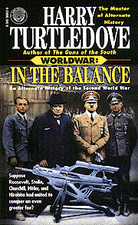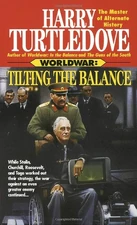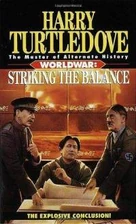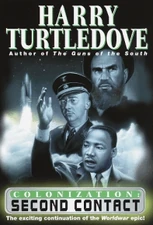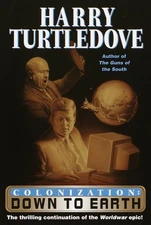| Polina Zhemchuzhina | |

| |
| Historical Figure | |
| Nationality: | Ukrainian citizen of the Soviet Union (born in the Russian Empire) |
| Year of Birth: | 1897 |
| Year of Death: | 1970 |
| Cause of Death: | Natural causes |
| Religion: | Atheist (Culturally Jewish) |
| Occupation: | Politician, Revolutionary |
| Spouse: | Vyacheslav Molotov, divorced but later remarried |
| Children: | Two |
| Military Branch: | Red Army |
| Political Party: | Communist Party of the Soviet Union, Jewish Anti-Fascist Committee |
| Fictional Appearances: | |
Polina Semyonovna Zhemchuzhina (Russian: Полина Семёновна Жемчужина) (27 February 1897 - 1 April 1970) was the wife of Vyacheslav Molotov, a founding father of the Soviet Union.
Zhemchuzhina joined the Bolsheviks during the Russian Revolution and served as a propaganda minister for the Red Army during the Russian Civil War. She met Molotov during those heady days and married him in 1921. They had two daughters.
Zhemchuzhina became a member of the CPSU and served as the USSR's first female Commissar when she briefly became People's Commissar of Fisheries in 1939. She lost this position later that year when she was accused of being connected to foreign spies. The NKVD investigated Zhemchuzhina but the evidence they found was so suspect and contradictory that she was exonerated. Nonetheless, she lost her ministerial position.
Zhemchuzhina never regained General-Secretary Joseph Stalin's trust. She was arrested on trumped-up charges of treason in December 1948. Molotov was not able to protect her despite his prominent (but precarious) position, and in fact the two were forced to divorce when Zhemchuzhina was convicted. She was sentenced to serve five years in a labor camp. She survived four years and three months in the gulag, until Lavrenty Beria obtained her early release in March 1953. She was reunited with Molotov, and her first question was "How's Stalin?" On learning that he had died, she fainted. Despite Stalin's having cast her aside, her loyalty to him had never wavered.
Molotov and Zhemchuzhina were remarried. When Molotov was forced out of the Soviet government in 1957 by Nikita Khrushchev, the couple retired to an apartment near the Kremlin. Zhemchuzhina died of natural causes in 1970. Like her husband, she went to her grave believing in the rightness of Stalinism and feeling no guilt over her role in enabling his tyranny.
Zhemchuzhina, born into a Jewish family, was an atheist, but her interest in Jewish culture was strong. During World War II she sat on the Jewish Anti-Fascism Committee. She was a regular at performances in the Moscow State Jewish Theater, and when her political standing in the Kremlin was adequately high, she was a voice in favor of developing good relations with Israel.
Polina Zhemchuzina in The Hot War[]
| The Hot War POD: November, 1950 | |
| Appearance(s): | Armistice |
| Type of Appearance: | Contemporary reference |
Polina Zhemchuzina had been arrested by Joseph Stalin about three years before the outbreak of World War III. When Stalin was killed in June 1952, his successor, Lavrenty Beria, released her. When she was released, she was reunited with her husband, Vyacheslav Molotov. Ironically, her first question to her husband was to ask about Stalin. When Molotov told her Stalin was dead, Zhemchuzina fainted. About a month after Beria released her, Molotov supplanted Beria as General Secretary, and brokered an end to the war.[1]
Defense Secretary Omar Bradley shared this anecdote with President Harry Truman in the last week of October 1952, after Truman had wondered aloud whether Molotov actually had a family.[2]
Polina Zhemchuzhina in Worldwar[]
| Worldwar POD: May 30, 1942 | |
| Appearance(s): | In the Balance; Striking the Balance; Second Contact; Down to Earth |
| Type of Appearance: | Contemporary references |
Polina Zhemchuzhina's Jewishness weighed heavily on the mind of her husband, Foreign Commissar Vyacheslav Molotov, in 1942, as he negotiated an agreement of cooperation between the Soviet Union and Nazi Germany in order to wage war against the Race Invasion of Tosev 3.[3]
In 1944, the Jewish background of Max Kagan, an American atom bomb scientist sent to Russia, made Molotov think fondly of his wife, a clever Jew herself.[4]
In 1963, after the Red Army rescued now General-Secretary Molotov from Lavrenty Beria's attempted coup d'etat, Molotov asked Georgy Zhukov about Beria's fate and other political developments. He then moved to the state-run radio station to assure the nation and the international community that he remained in control. While en route, he realized he had neglected to ask whether Polina had survived the attempt to overthrow him. With a shrug, he decided it could wait till later.[5]
NKVD agent David Nussboym suspected that Molotov's wife was the only person who really knew him.[6]
References[]
- ↑ Armistice, loc. 6467, e-book; p. 378-379, HC.
- ↑ Ibid.
- ↑ In the Balance, p. 424, HC.
- ↑ Striking the Balance, p. 152, HC.
- ↑ Second Contact, pg. 454.
- ↑ Down to Earth, p. 395, HC.
| |||||||||||||||||||||
| |||||||||||||||||||||||||



